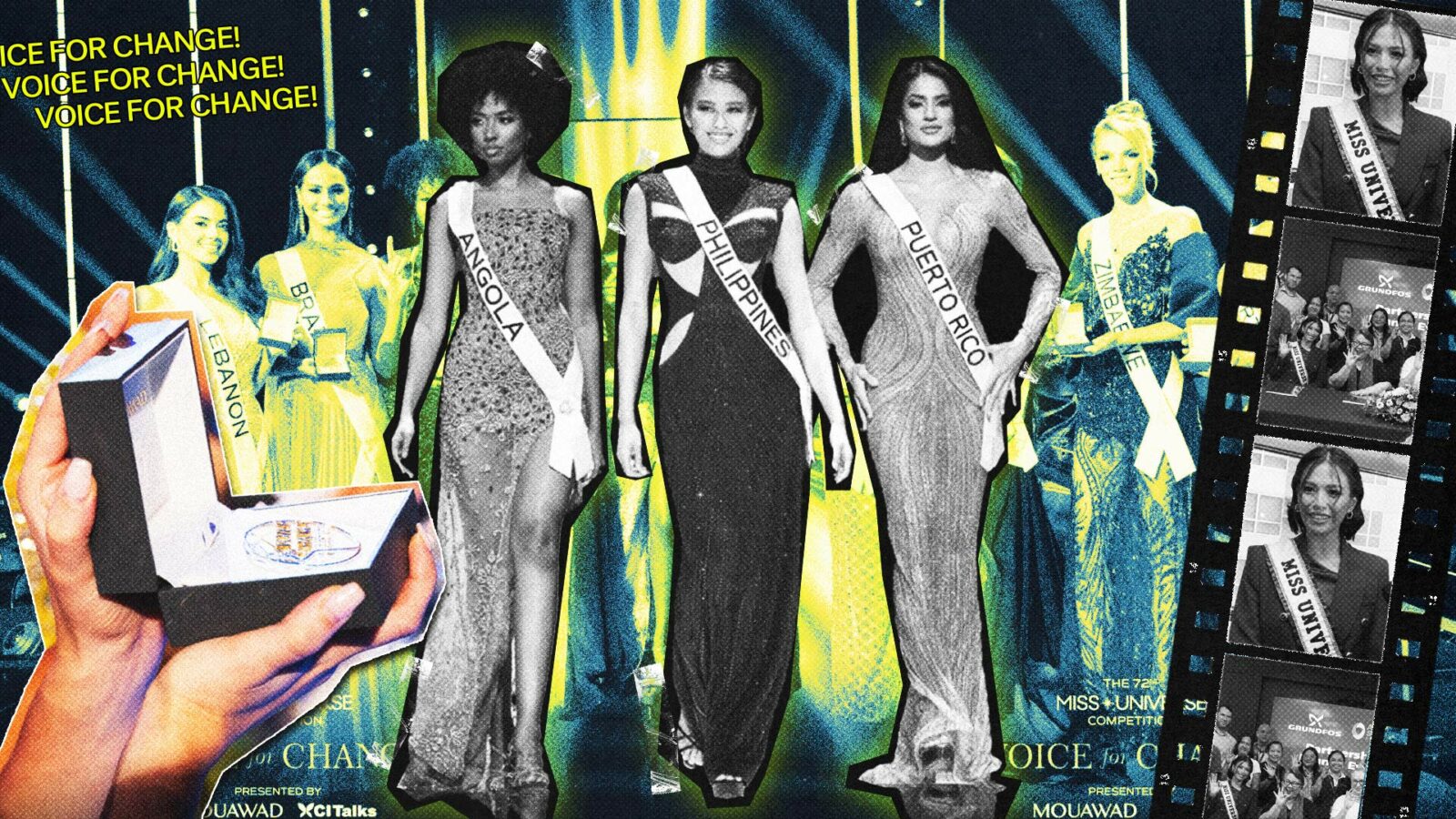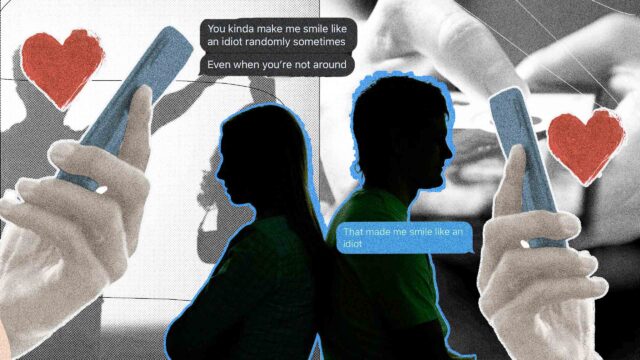Michelle Dee made it to the Top 10 at Miss Universe and bagged the Voice For Change Award—but what does the category really mean?
(Trigger warning: this story mentions suicide and mental health issues.)
Related: Michelle Dee Is Already Radiating Winner Energy At Miss Universe 2023
Miss Universe Philippines 2023 Michelle Marquez Dee may not have bagged the Miss Universe title, but the multi-hyphenate queen scored a valuable win by being a Gold Winner of the Voice for Change video contest.
Voice for Change is a new, special section of the 72nd Miss Universe pageant, where candidates share their advocacies and the causes they champion in a three-minute video. It’s a collaboration between the Miss Universe Organization, jewelry company Mouawad, and media platform CI Talks that aims to unite “diverse voices in a harmonious call for action.”
While the award has no bearing on who gets the title, it signifies a movement to expand the definition of “beauty” and push for delegates to be not just “beauty queens”, but harbingers of change.
Along with Michelle Dee, the other Gold Winners of the Voice for Change Award were Miss Universe Angola Ana Bárbara Coimbra and Miss Universe Puerto Rico Karla Guilfú Acevedo. Delegates’ submissions were evaluated with certain criteria such as delivering a compelling case for the cause, solution quality, message delivery, memorability and credibility, and creativity and innovation. The winners were decided by the Selection Committee as well as through fan voting. Curious to see what the winners championed? Read on.
ADVOCACIES IN THE SPOTLIGHT
In the Voice for Change videos, delegates talk about their chosen social issues and sectors, discussing problems faced by people and how they can be addressed or alleviated. Ten winners were selected in the Miss Universe preliminaries, and three Gold Winners and seven Silver Finalists were announced in the finals.
In her video, Michelle Dee talked about autism acceptance, inclusivity, and empowerment, a cause near and dear to her heart. Michelle has been a longtime advocate for autism awareness and mental health awareness and education—her lifelong mission. Having grown up with siblings on the autism spectrum, she works with non-profit group Autism Society Philippines (ASP), dedicated to working towards inclusivity of people on the autism spectrum in employment, providing them support, and creating opportunities for all.
Twenty-three-year old Miss Universe Angola Ana Bárbara Coimbra tackles a growing challenge in Angola—that of malnutrition, caused by high inflation. Ana calls for the provision of accessible, low-cost, nutritious food to families and children. By creating a project model at an ecological school in Angola, Ana emphasizes the benefit of teaching people to grow their own food, “even on a small scale.”
Miss Universe Puerto Rico Karla Guilfú Acevedo somberly emphasizes the need to “destigmatize emotions, empower communities, and spark a global movement for mental health awareness and support” in her video about suicide prevention and mental health care.
Moreover, Silver Winners include Brazil’s Maria Brechane, Chile’s Celeste Viel, Lebanon’s Maya Aboul Hosn, Singapore’s Priyanka Annuncia, South Africa’s Bryoni Govender, Ukraine’s Angelina Usanova, and Zimbabwe’s Brooke Bruk-Jackson.
These delegates tackled a wide range of sectors and issues, such as empowering the deaf community through learning Libras (Brazilian Sign Language), struggling immigrant children and families, Lebanon’s education crisis, human trafficking, gender-based violence, the mental toll of war, and financial inclusion in the informal sector, respectively.
PERFORMATIVE OR POSITIVE CHANGE?
Every year, Miss Universe brings to the fore a conversation on Miss Universe and, in general, pageantry’s negative effects on society in relation to exploitation, feminism, beauty standards, and self-esteem. Regardless of the “inclusivity” beauty pageants seek to incorporate, people still call for its total abolition, while some call for changes within its system. On the other hand, some people also highlight the positive changes and platforms pageants offer, one of which is Voice for Change.
What Voice for Change enables Miss Universe contestants to do is amplify calls for change through increasing awareness, support, or even funding for certain causes and advocacies. At present, what we could do regardless of our stance on beauty pageants is take notice of these calls, and critically examine why and how such issues should be addressed—how can we support or address the advocacies these women are bringing to our attention?
The candidates have proven that they’re willing to champion a cause, provide solutions, and work with marginalized sectors. It’s pretty inspiring. But the challenge is longevity and sustainability—is it enough that these issues are highlighted on the Miss Universe stage?
Now that the competition’s over, how is Miss Universe, the delegates, sponsors, and the public (read: we) going to move forward and act further on these causes brought into the spotlight or the causes we advocate for ourselves? It’s a question that doesn’t have an easy answer. But if the Miss Universe organization is truly committed to change, we expect them to walk the talk.
Continue Reading: 6 Reasons Why Michelle Dee Is An Actual Queen





